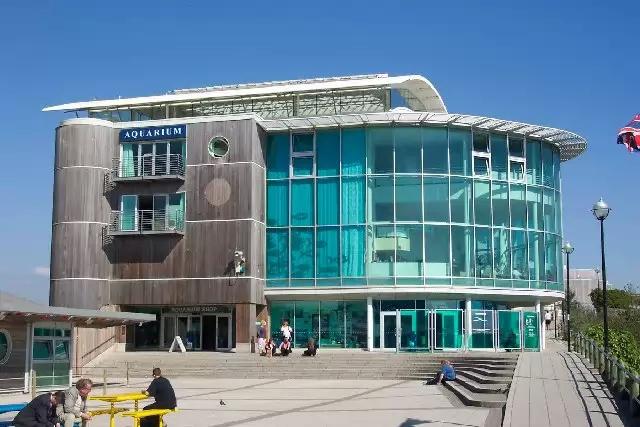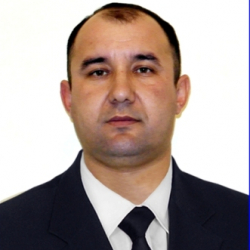
SECONDARY SCHOOL № 37
LESSON SUMMARY
FORM - 7
THEME:
Holiday in Plymouth.
Teacher: Khaydarov Farkhod Oybekovich
The29th of April
Lesson plan for an hour forms VIIth Weekday Monday
I. The theme of the lesson: Holiday in Plymouth.
II. Aims of the lesson:
educational: to introduce about word structure. to develop pupils knowledge, oral speech, their pronunciation,
upbringing: to bring up the pupils writing habits. to improve their opinion about the holidays and historical and interesting places where they can spend their holidays, about English speaking countries
developing: to develop speaking and reading skills of the pupils, working with dictionaries.
The type of the lesson: to check pupils knowledge, to give new information.
The methods: answer-questions, writing
III. The equipment of the lesson: the textbook of the 7th form, Fly High. Blackboard and
pictures, Tests, crosswords. Dictionaries and other necessary things which are belong to the theme, computer .
IV. The main part of the lesson:
1. Greetings.
Good morning, pupils!
Good morning, teacher.
Thank you, sit down please.
2.Daily questions and answers.
Well, who is on duty today?
I am on duty today.
Who is absent today?
All are present today.
What season is it now?
It is Spring now.
What holidays we celebrate in Spring?
We celebrate … and other holidays in Spring.
Well, who can tell me what was your homework for today?
Our homework was…. for today.
What is the capital of England?
London is the capital of England.
What is the capital of the USA?
Washington is the capital of the USA.
3.To introduce the new theme:
To show the pictures of interesting places where they can spend their holiday.






4. New words and grammar rules
| English | Transcription | Uzbek | English | Transcription | Uzbek |
| For ages | [fə’reiʤiz] | Anchadan beri | Colon | [koulən] | Ikki nuqta |
| Beach | [bi:tʃ] | Plyaj, qirg’oq | Comma | [kɔmə] | Vergul |
| Seahorse | [si:hɔ:s] | Dengiz oti | Hunter | [hʌntə] | Ovchi |
| Diver | [daivə] | G’avvos | Fisherman | [fiʃəmən] | Baliqchi |
| Exclamation mark | [ekskləmeiʃən’ ma:k] | Undov belgisi | Question mark | [kwestʃən’ ma:k] | So’roq belgisi |
| Full stop | [ful’stɔp] | Nuqta brit: | Period | [piəriəd] | Nuqta amer: |
|
|
|
|
|
|
|
|
|
|
|
|
|
|
5. Grammar rules
Haven’t seen you for ages! – Ko’rishmaganimizga ancha bo’ldi!
Ex: 1 page: 78 we’ll divide pupils into three groups.
Give them sheets and ask to write the names interesting places where they can spend their holiday. And answer the questions.
Where do people in your country like to go on holiday?
Where do you think people in Britain like to go on holiday?
I think people want to go to resorts and historical cities of Uzbekistan in their holidays.
In my opinion, English people like to abroad for their holiday.
| 1st group | 2nd group | 3rd group |
|
|
|
|
|
|
|
|
|
|
|
|
|
|
|
|
|
|
|
|
|
|
|
|
|
|
|
|
Ex: 2 page: 78 work in pairs, ask and answer the questions.
The National Marine Aquarium, one of the Britain’s most popular places, is located near Plymouth. Open daily 10pm-6pm. In the Shark Theatre you will see over ten real live sharks. Our guides will tell you interesting facts about these hunters of the sea.
What kind of place is the National Marine Aquarium?
It is one of the Britain’s most popular places, is located near Plymouth.
What time does it open?
Open daily 10pm-6pm.
Where will you see over ten real sharks?
In the Shark Theatre you will see over ten real sharks.
Ex: 3 page: 78
For ages – anchadan beri. I want to write you for ages.
Beach – qirg’oq. I like to walk along the beach.
Seahorse – dengiz oti. My little brother likes seahorses.
Diver – g’avvos. My friend wants to become a diver.
Ex: 4a page: 78 listen to the dialogue . and answer the question.
James: Hello, Anne. Haven't seen you for ages! Where have you been?
Anne: Hello, James. I was away in Plymouth.
James: Why did you go there?
Anne: For my holidays. I stayed with my grandparents.
James: Uh, with your grandparents... must be boring.
Anne: Oh, no. My grandparents are wonderful! my granddad even played basketball with me, and my granny and I went to the beach when the weather was good. And one day they took me to the National Marine Aquarium.
James: The National Marine what?
Anne: The National Marine Aquarium. There are hundreds of fish there, and there are skilled divers, and they feed the fish by hand.
James: Wow! That's fantastic! What did you like most of all?
Anne: Baby seahorse and sharks!
James: Sharks?! How exiting! Please tell me all about them. How big were they? Do they eat people?
Anne: Some do. I shall tell you more about them and show you some pictures of the Shark Theatre.
And where did you go on holiday?
James: The North Cornwall...
What did Anne do in Plymouth?
She went there for her holiday.
What did she see there?
She saw sharks, seahorse there.
Ex: 4b page: 78 Listen again and choose the right words.
Anne and her granny went to the … when the weather was …
Beach / cold b. theatre / fine c. beach/ fine
One day Anne’s … took her to the National … … .
Grandparents/Marine Aquarium b. parents/Marine Aquarium
c.parents/ park
3. Skilled … feed the … by hand.
a. fisherman/fish b. divers/sharks c. divers/fish
4. Best of all Anne liked the … and the … .
a. divers/sharks b. baby seahorse/sharks c. divers/baby seahorse
Ex: Match the punctuation marks and their names in English.
∙ a) an exclamation mark. 

, b) full stop (Br.E) a period (Amer.E).
: c) a question mark.
? d) a colon.
! e) a comma.
6: complete the table to check your knowledge
| a) an exclamation mark. | a) an exclamation mark. | a) an exclamation mark. |
| b) full stop (Br.E) a period (Amer.E). | b) full stop (Br.E) a period (Amer.E). | b) full stop (Br.E) a period (Amer.E). |
| c) a question mark. | c) a question mark. | c) a question mark. |
| d) a colon. | d) a colon. | d) a colon. |
| e) a comma. | e) a comma. | e) a comma. |
Chain drill: everybody tells where s/he wants to go on his/her holiday.
A: I want to go mountains on my holiday.
B: I want to go to Tashkent on my holiday.
To do crossword:
| . | f | u | l | l | s | t | o | p |
|
| ? | q | u | e | s | t | i | o | n |
| ! | e | x | c | l | a | m | a | t | i | o | n |
| , | c | o | m | m | a |
|
| : | c | o | l | o | n |
V. To check homework: To ask new words and word combinations of last lessons which
were given to learn at home, to check exercises were given to do
at home as homework exercises.
VI. The End of the lesson:
a) Marking or estimating active pupils;
b)Asking about questions for new theme, giving tests belong to the theme;
c)To give homework for next lesson: to learn new words
and word combinations and make up manifesto for teaching English,
to do homework exercise 1.2on page 85.
d)To say Good Bye .




























